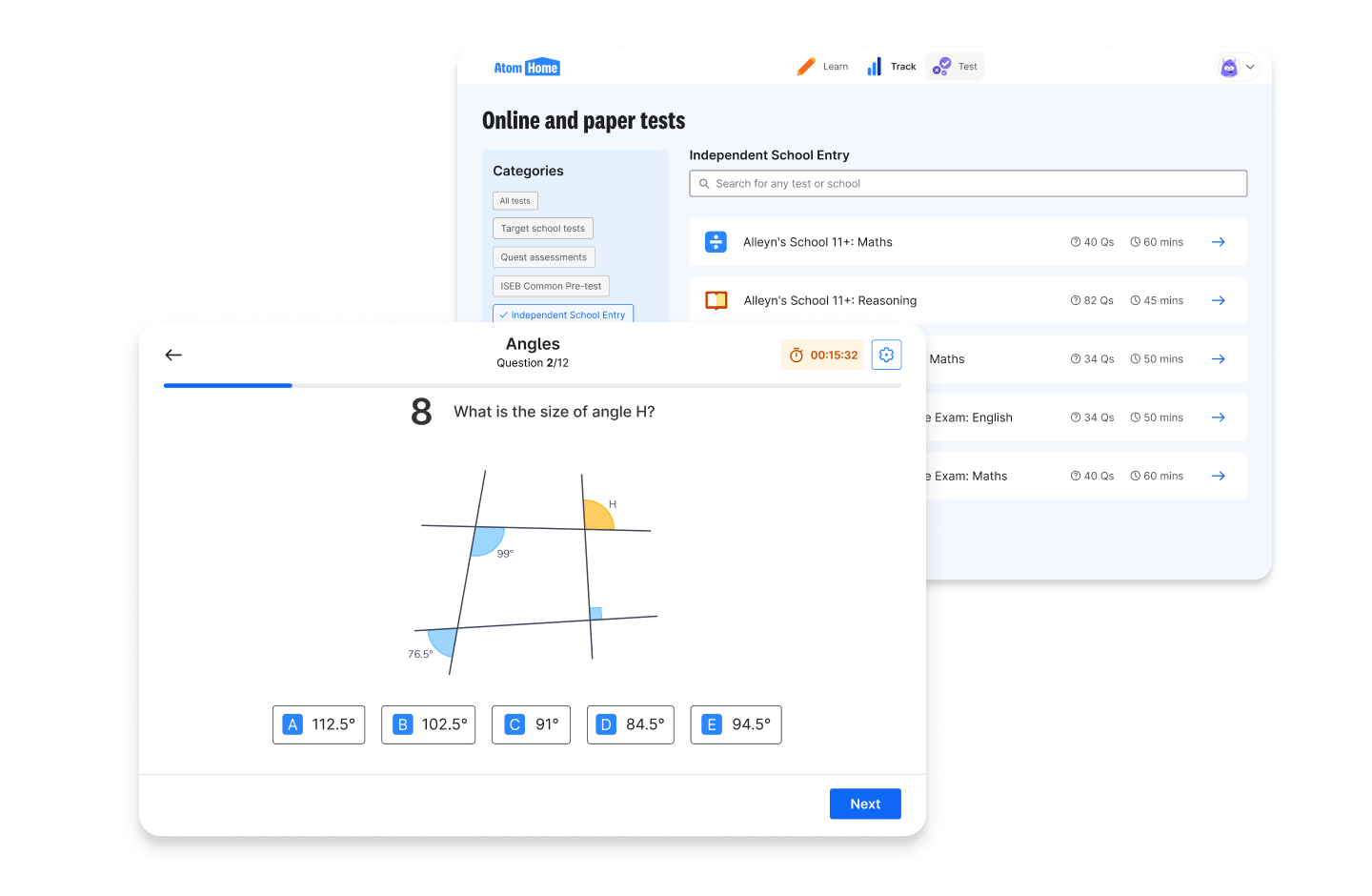Bursaries: a parents’ guide

Small class sizes, great pastoral care, exciting extracurriculars, excellent exam results... It's understandable to want to give your child all the benefits of a private school education. If you're worried about school fees, there may be support options available to you and your family. Many independent schools offer financial assistance to widen access to top-quality education.
How much does private school cost?
The cost of an independent education in the UK varies from school to school. The fees depend on the type of school, its reputation, and the region it is located in. Boarding schools, and schools in London and the South, are usually more expensive.
Most independent day schools charge between £4,000–£8,000 per term for senior students. Boarding school fees are more expensive – often in the region of £10,000 per term. So, a private senior education will cost from £12,000 per year for day schools, and from £30,000 per year for boarding.
What is a bursary?
A bursary is a financial grant given to children whose families cannot afford the school fees. Children still need to meet entrance criteria (for example, pass the entrance exam for a selective school). Bursaries do not need to be repaid to the school.
Bursaries are more common than you might think. Many private schools are committed to ensuring that pupils from a wide range of backgrounds are able to come to their school. These schools believe in the importance of having a pupil population that is representative of society, and giving all children the opportunity to fulfil their potential. According to the Independent Schools Council (ISC), around one in three children at participating schools receive some kind of financial assistance.
At most schools, bursaries are only available for children who would be offered a place regardless. Schools normally look at admissions criteria to decide which children to offer places to. This can include:
- Their performance in the entrance exam and interview (selective schools)
- Whether the school is a good fit for the child's educational needs
- How close they live to the school
- Occasionally, whether they have a sibling already at the school
The bursary assessment process happens at the same time as the school admissions process. The outcome of one may impact the other. Schools are most likely to offer bursaries to children who meet or excel beyond the admissions criteria.
£100 off your Atom Home subscription
You have the chance to win £100 off your Atom Home subscription when you sign up to our newsletter.

Types of financial help for school fees
Means-tested bursaries
Means-tested bursaries are the main way to get help with school fees. The amount you receive depends on your family’s income and financial situation.
Bursaries work on a sliding scale. This means families with lower incomes get a bigger discount. Some schools offer up to a 100% discount on fees for families with the lowest incomes.
In addition to tuition, some schools may cover or reduce other costs for bursary families. These can include the registration fee (usually £100-£300) or the school deposit (typically equal to one term’s fees, refunded when your child leaves).
Some schools also provide extra help, covering costs like uniforms, lunches, books, and school trips. This is sometimes called a “110% bursary” or an “assisted place.”
Bursaries are reviewed each year. If your financial situation changes, the amount of support you qualify for may also change.
Hardship funds
Some schools have hardship funds for families whose financial situation changes unexpectedly after their child has started at the school. These funds help ensure the child’s education isn’t disrupted. Reasons for needing hardship funds might include job loss, illness, or the death of a parent.
Scholarships
Scholarships are awards for students who excel in specific areas like academics, art, music, drama, or sports. At some schools, scholarships include a small financial benefit, while at others, they’re about recognition rather than money.
If a scholarship does include money, it usually covers up to 10% of fees, though larger awards (like 50%) are rare. Sometimes, scholarships fund specific expenses like music lessons or sports coaching. Some schools no longer offer financial awards for scholarships, instead focusing on bursaries for families in need.
What’s the difference between a scholarship and a bursary?
Scholarships are not based on income but on talent or achievement. Your child may qualify for a scholarship if they perform well in an entrance exam or excel in areas like art or music. These often require an application, portfolio, or audition.
Bursaries, on the other hand, are awarded based on financial need. Your family’s income determines eligibility.
At many schools, a child can apply for both a bursary and a scholarship. The processes are separate, and applying for one doesn’t affect the other. However, children usually cannot apply for more than one type of scholarship at the same time.
Both scholarships and bursaries often require annual reviews. To keep a scholarship, your child may need to show ongoing excellence and good behaviour in their area of expertise.
How to apply for a bursary for your child’s education
To apply for a bursary, you will need to complete an application form. This might ask you to outline your financial circumstances, and why you believe your child should attend the school. Some schools have a box you can tick on the school registration form to request a separate bursary application form. Others will have a bursary application form available on their website, or will require you to contact the bursar to request one.
Once you have submitted your application form, some schools will pass it on to a third party company to handle all or part of the process. Other schools have a senior staff member to manage the process themselves. In all cases, bursary applications are handed sensitively. Any information you submit is always confidential.
How are bursaries assessed?
The bursary assessment process usually consists of two stages:
- An overview of your family's financial circumstances based on the evidence you have provided.
- A deeper investigation. This might include further supporting evidence, credit checks, and visiting you at home.
If you are considering applying for a bursary, you should be prepared to have your finances examined in detail. You will also be asked to submit plenty of documentation. Usually, the school will calculate your relevant income to decide whether you qualify for a bursary. This is your gross household income minus £2,000–£3,000 per dependent child.
As well as relevant income, schools will consider your wider circumstances, assets and expenditure. For example, families are unlikely to qualify for a bursary if:
- They own more than one property
- They have a large house in an expensive area and choose not to downsize
- They could release money from savings or investments to cover school fees
- The child's grandparents could contribute to school fees
- They spend a lot of money on holidays, new cars, or home improvements
What documents will I need to submit?
You are likely to be asked for:
- Proof of identity and address
- 12 months of bank statements for all accounts, including savings and ISAs
- Details of all investments, assets and property
- Evidence of combined household income through payslips, P60s, and company accounts
- Evidence of expenses, including mortgage statements or rental agreements
Divorced parents will need to provide their own financial information.
What is the bursary application process timeline?
The timeline for applying for a bursary can vary from school to school. However, most independent day schools follow a similar timeline for 11 plus entry:
Autumn term in Year 6
- Register with the school and request a bursary application form
- Confirm the application deadline with the school
- Gather financial documentation
October–January in Year 6
- School entrance assessments and interviews take place
- Submit bursary applicaiton form and supporting documents
- Bursary assessment process and home visit
February in Year 6
- Offers of school places
- Outcome of bursary decision
March in Year 6
- Accept or decline the school place
- Accept a bursary, if offered
Every school year
- Bursaries are reassessed and adjusted where needed
How much do I need to earn to qualify for a bursary?
The way schools assess income for bursaries varies. Some schools do not have fixed limits and review applications individually. Others set clear income thresholds, e.g. an upper limit of £100,000.
Many schools share their income criteria online or in their bursary policies. Some even offer bursary calculators to help you estimate your eligibility. If this information isn’t available, you can ask the school directly.
The income needed to qualify for help with school fees might be higher than expected. Here’s a general guide:
- Families earning over £100,000 are unlikely to qualify for a bursary.
- Families earning around £70,000 may get a small fee discount at some schools.
- Families earning under £20,000 may qualify for a full bursary.
Bursary home visit
If the school moves forward with your application after reviewing your documents, they may arrange a home visit or Zoom call. This could happen on short notice, but it’s not something to worry about.
The visit allows the bursar or dedicated financial controller to:
- Meet your family
- Understand your financial situation better
- Clarify any questions about your application.
They’ll tell you beforehand if they need you to prepare extra documents for the visit. The process is designed to give a fair assessment of your financial needs.
How to find out what bursaries are on offer
I've chosen a school
If you already have a school or schools in mind, check their websites first for financial assistance. The application process and amount of support available can vary a lot for different schools, even within the same area.
If the school website is vague, see if they have a bursary policy. This often includes more detailed information. We also recommend checking the school's fee policy to find out exactly:
- what the school fees cover (e.g. do they also cover lunch and extracurricular activities?)
- if there are any additional charges (e.g. registration fees and deposits)
- whether these costs can be covered by financial assistance
We always encourage asking the school's admissions team for help. Many independent schools struggle to get applications from low-income families. Sometimes, this is because parents don't know that bursaries are available, or find the process overwhelming. Most schools have an email address or contact number for their bursar or admissions team on their website.
I haven't chosen a school
If you don't have a specific school in mind, take a look at the Independent Schools Council website. This allows you to search thousands of independent schools in the UK. You can refine your search by ticking a box to only show schools which offer financial assistance.
Live in London? The London Fee Assistance Consortium is a group of schools which offer free or subsidised places.
Finally, educational-grants.org gives a list of trusts which offer financial help with school fees. These trusts can depend on factors such as your income, occupation, birthplace, or religion.
Take control of your child’s independent school prep.

Worried about keeping pace with the competition? Independent school exams can feel unpredictable, but your child’s preparation doesn’t have to be. Atom shows you exactly what to practise and how they’re performing, so you can stay ahead throughout the admissions process.
- Follow personalised weekly exam plans that show them what to learn next.
- Practise with mock tests that replicate their exam and generate new questions every time, so they build real exam skills.
- Track progress and see how they compare to others preparing for the same schools.
Start your free trial and help your child get ready for senior school entry.
